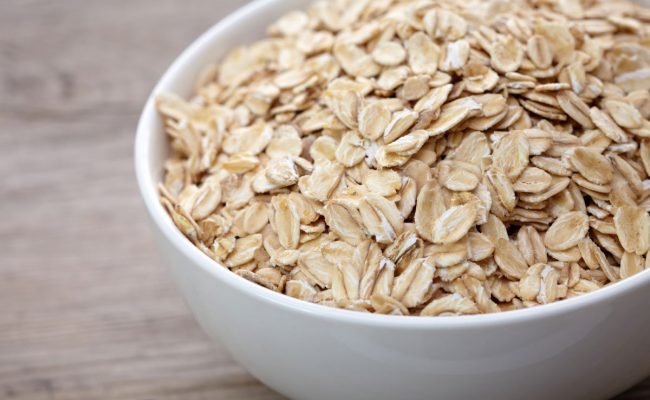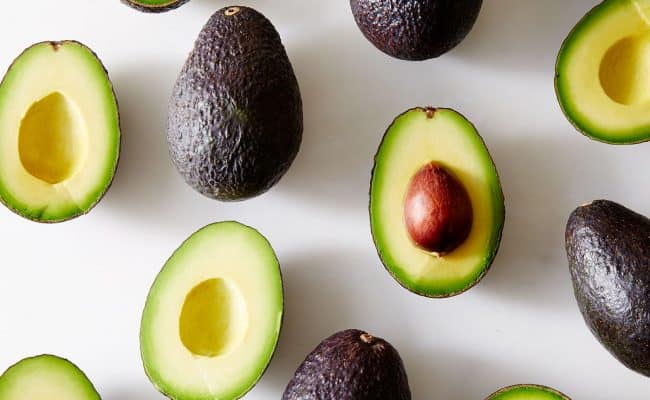
A diet high in fruits and vegetables is considered an important part of a healthy diet. It is associated with a lower risk for obesity and cardiovascular diseases. Fruits are a rich source of vitamins, minerals, fiber and antioxidants. Some may be concerned with the level of sugar in fruit, but many studies and health experts agree the sugar in fruit affects the body much different than other forms of sugar.
How much fruit should you eat?
According to the USDA, fruits and vegetables should make up at least half of your plate at meal times. Unfortunately, many people do not meet this recommendation.
With all the recognized health benefits of eating fruit, why would some people suggest you shouldn’t eat fruit at certain times?
Some websites suggest eating fruit at certain times could impact the digestion of food you are eating.
However, there is not any scientific validity to back up these claims. There is no evidence to believe eating fruit at certain times could negatively affect digestion.
Eating fruit before, or after, a meal can offer advantages. The main concern health experts agree on is most people need to increase their fruit and vegetable intake in general.
What some say is the harm of eating fruit with other food
Some websites suggest eating fruit with other foods could increase risk for indigestion, bloating or gas. The thought is fruit can actually ferment other food in the stomach when fruit is eaten with other foods.
It is suggested this fermentation can cause the side effects of feeling bloated, gas or general indigestion.
Therefore, to avoid this fermentation process in the stomach, it is suggested to eat fruit only on an empty stomach.
Is it valid?
According to Jill Weisenberger, MS, RD, CDE in a Shape article (1), the idea fruit eaten with other foods can cause fermentation is not valid. There is no evidence to support the idea fruit can influence the digestion of other foods eaten at the same time and cause fermentation.
The hole with this theory is the stomach is incredibly acidic. The stomach acid kills any bacteria needed for fermentation to happen. The body is well capable of digesting different foods at the same time unless there is something wrong with your digestive system.
The USDA (2) also suggests some fad diets recommend eating fruits on an empty stomach to help with weight loss, detoxification and digestion. However, there is no validity for these health claims. Fruits can be eaten at meal times or on an empty stomach.
Benefits of eating fruit before a meal
Eating fruit before a meal could be advantageous for weight loss. Fruit is high in fiber which can help make you feel full after eating. This can lead to less food intake afterwards which can be helpful for weight loss.
Fruit is considered a low energy dense food meaning it provides very little calories for the amount of weight it provides. Therefore, eating fruit can help you feel full without piling on the calories.
A 2003 study (3) put women on a low calorie diet with a snack supplement for 12 weeks. One group was instructed to eat an apple before meals, another group a pear before meals and the last group at a low calorie oat cookie before meals.
After the 12 weeks, both fruit groups lost weight, but the oat cookie group did not. All groups ate the same amount of energy. The groups who ate the fruit also had significantly lower levels of blood glucose.
This study suggests eating fruit before a meal may be helpful for weight loss, specifically apples and pears. Eating other fruits before a meal may have a similar effect.
Benefits of eating fruit after a meal
As mentioned, there isn’t any evidence to worry about eating fruit during or after a meal and interfering with the digestion of other food. In fact, eating fruits as part of a meal or afterwards could also help make you feel full.
Eating fruit after a meal can help you curb a sweet craving. If you are used to ending the meal with something sweet, subbing in fruit in place of higher calorie sweets can save you calories. It can also bump up your intake of fiber, vitamins and minerals.
For example, a handful of berries can provide under 100 calories while satisfying your sweet tooth.
How to add more fruit in your diet
There are many reasons to add fruits and vegetables into your diet. If you are looking for creative ways to bump up your fruit intake, think about adding fruits to meal times instead of just eating them for a snack once or twice a day.
Eating them at the end of a meal as a dessert can be an easy way to bump up your fruit intake. Another idea is to add fruit in salads at meal times.
Sautéing or roasting apples, pears or citrus fruits as a flavoring for meats can also help you bump up your fruit intake.
Dried, fresh or frozen fruit can be added to breakfast or lunch by adding it to oatmeal, yogurt, cereal or cottage cheese.
Conclusion: Should you eat fruit before or after a meal?
Experts suggest increasing your fruit intake, whatever time of day, can be beneficial. There is no scientific evidence to back up claims eating fruit with other foods could hamper digestion.
In fact, making half your plate with fruits and vegetables is recommended.
Eating fruit before a meal could be beneficial for weight loss by helping you fill up on low calorie, high fiber foods.
Eating fruit at the end of a meal can help curb your sweet tooth and leave you feeling satisfied.











